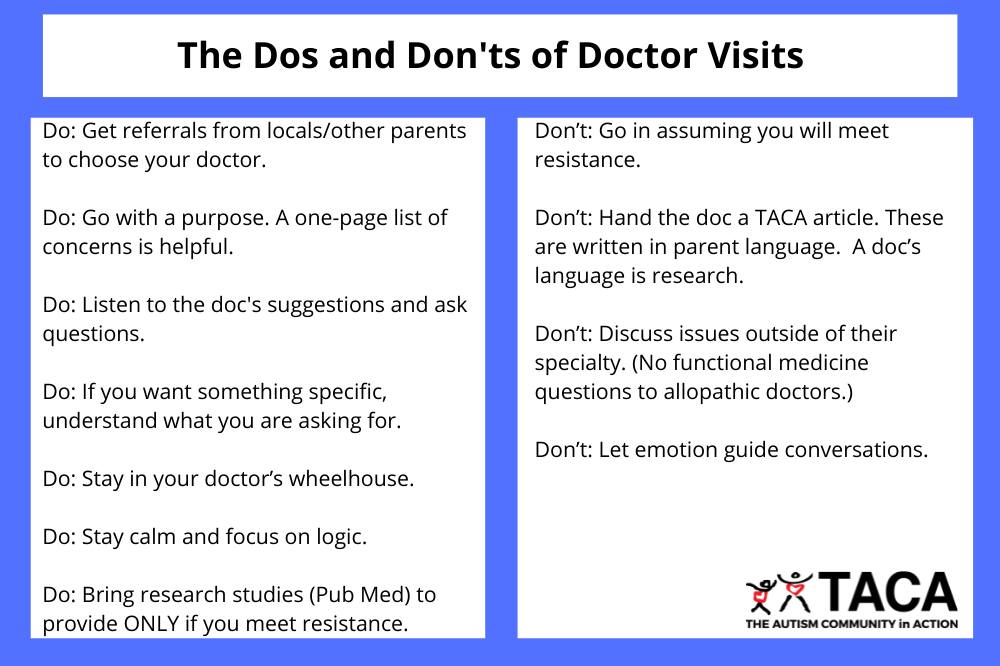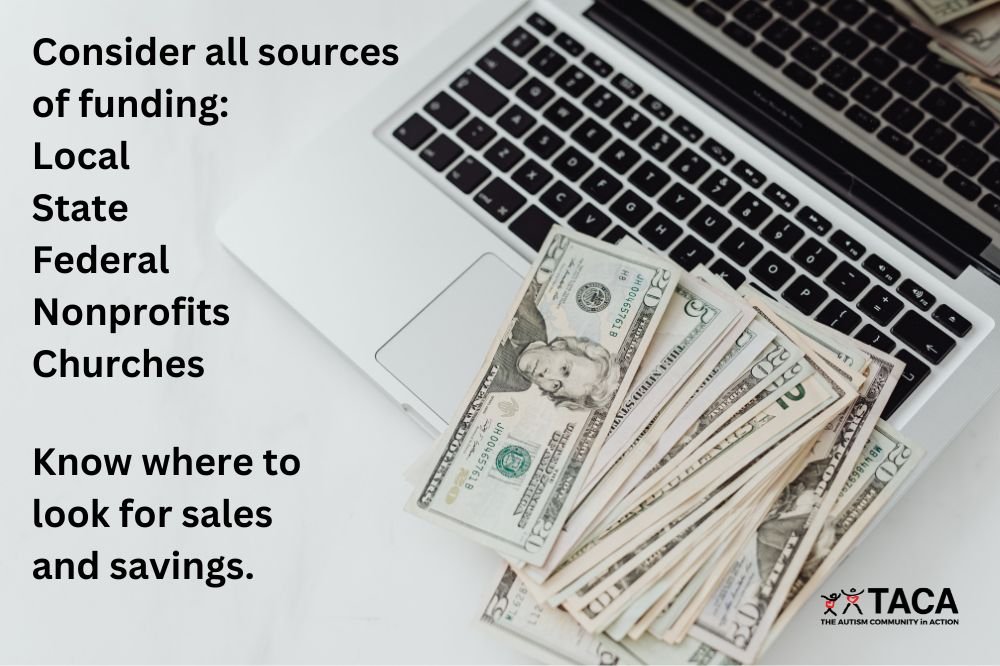Autism Treatment on a Budget

All contents of this resource were created for informational purposes only and are not intended to be a substitute for professional advice, diagnosis, or treatment. Always seek the advice of your physician, therapist, or other qualified health providers with any questions or concerns you may have.
We understand that treating autism is extremely expensive. In this article, we will cover budget-friendly tips to treat autism.
This article will cover these topics:

Revise Diet
Focusing on a nutrient dense diet, avoiding food sensitivities and processed foods will almost always give you the most bang for your buck. Healing comes from the inside out and a healthy, diverse diet is the foundation of all good health. In turn, improved gut health results in better behavior and improved cognition. No doubt that cooking from scratch requires a lot of time and effort. It will be a lifestyle adjustment. With this in mind, see the following tips:
Stick to the basics!
A gluten-free, dairy-free healthy diet can be done with no special foods. Simply replace dairy, breads, cereals, etc with a wide variety of fresh produce.
- Lose all the expensive foods such as cheese, yogurt, and bread.
- Lose the sugar and additive-filled processed food.
Breakfast examples include:
- Eggs, homemade hash browns, and a veggie.
- Smoothie with almond milk, avocado, chia seeds, cocoa powder, and ice.
- Blondies made with chickpea peas, almond butter, a bit of maple syrup, baking soda, and salt in a blender then baked at 350.
- Gluten-free organic oatmeal with fresh fruit on top.
- Granola
- *Remember that breakfast does not have to be traditional breakfast foods!
Lunch examples include:
- Deli meats, raw veggies, nuts and seeds, and a fruit.
- Homemade Soup
- Large salad with sliced grilled chicken
- Chicken salad served over a bed of lettuce
Snack examples include:
- Protein-packed energy balls (made with a nut or seed butter, gluten-free oats, and a few chocolate chips)
- Fruit (peeled, or cut into kid-friendly shapes)
- Raw, chopped vegetables (carrots, red peppers, cucumbers, mushrooms, sugar snap peas)
- Nuts and seeds
- Frozen peas (Believe it or not, these are fabulous!)
- Hummus and sliced red peppers
- Organic tortilla chips and guacamole
Dinner examples include:
- Spaghetti with ground meat sauce and gluten-free noodles
- Add chopped or pureed veggies to this sauce for added nutrients.
- Roasted chicken, a baked potato (topped with vegan butter), and a veggie.
- Chili with ground turkey meat and beans
- Burgers served on a Portello mushroom, lettuce, or just plain without a bun.
- Serve with sliced and baked sweet potatoes tossed in Extra Virgin Olive oil, and salad.
- Salmon with quinoa and asparagus
- Pasta salad with gluten-free pasta and veggies with an olive oil and balsamic vinegar base
- Add olives, tomatoes, and whatever veggies you like.
- Homemade chicken noodle soup using gluten-free noodles
- Meatloaf (with chopped veggies mixed in), mashed potatoes and green beans.
- Do not use cheese or bread crumbs in the meatloaf. You can use salsa for flavor instead.
- Do not use milk or butter in the mashed potatoes. Use chicken broth and vegan butter instead.
Find great recipes online
You can find loads of nutrient-dense, gluten-free, dairy-free recipes on these websites:
Buying Food on a Budget & Sourcing Best Ingredients
- Learn about how to shop for a special diet in this article titled GFCFSF Diet on a Budget
- Learn about organic verses conventional food/produce.
- Grow your own food in a garden
- Join a food co-op
- Shop Farmers Markets
- Remember that you can get lots of protein from vegetables and they are cheaper than meat.
Again – Please read this article for budget-friendly tips: GFCFSF Diet on a Budget

Address Picky or Restricted Eating Habits
Picky eating causes nutritional deficiencies and poor microbial diversity in the colon.
If you read the above examples for meals and realize your child will not eat those foods yet, then your first step is to work on picky and restricted eating.
This TACA article titled “Picky Eating in Autism” has numerous suggestions for addressing selective eating habits.
Get help on board
Use private health insurance or Medicaid to pay for:
- Feeding Therapy to work on oral motor function
- Occupational therapy for sensory integration
- A GI doctor to check for constipation, reflux (GERD), eosinophilic esophagitis, and other GI issues that result in restricted eating.
- Dentist to check for tooth pain
- Pediatrician to swab for strep throat, which may result in PANDAS, and therefore restricted eating.
- Nutritionist to help with food choices.
- Find one that takes your insurance here.
Invest in a zinc supplement
- An inexpensive zinc picolinate supplement can be extremely helpful.
Free Tips
- Use the Free tips included in this TACA article on Picky Eating.
Evolve and Refine Diet
And yes, MORE diet!
If you are not seeing enough progress, don’t give up! It likely means your child’s diet needs to be further refined.
When you are on a tight budget, diet needs to be extremely clean and nutrient-dense.
- Focus on diversity in food to create a more diverse gut microbiome.
- Use diet to decrease fungal and pathogenic bacterial overgrowth in the gut.
- Focus on increasing GREEN foods in the diet, even if you have to add fresh parsley to food.
- Learn about “Special Diets for Autism”.

Reduce the Cost of Therapy
This TACA article titled “Therapeutic Interventions for Autism” outlines all the therapies used for autism and possible funding sources for them.
Use private health insurance or Medicaid to cover therapies such as:
- Speech Therapy
- Occupational Therapy
- ABA (Applied Behavioral Analysis)
- Physical Therapy
Learn how to get an AAC device covered:
- Read how to “Obtain funding for an AAC device”
Look for additional sources of funding for therapy:
- Easter Seals
- Local grants
- Local special needs organizations
College students in training:
- University Students training to become SLPs or OTs may work with your child for a reduced cost in exchange for the experience.
Attend free socialization opportunities in your community:
- Library story time
- Free sensory-friendly events in your area
- Church groups
Engage with your child at home:
- Your therapist can help construct at-home activities
- This TACA article titled “Engaging with your Child at Home” has ideas to get you started.
- Read this TACA article to learn about starting an In-Home Therapy Program.
Exercise
Exercise has amazing benefits for children with autism, and it is free!
- Exercise is benefical for autism
- Get outside
- Calm the flight or flight response
- Teach deep breathing exercises
- Do yoga with your child
- Activate the vagus nerve by:
- Singing and humming
- Gargling
Lower Toxins in the Home
Research tells us that kids diagnosed with autism have a compromised ability to detoxify. Use these cost-effective methods to reduce toxins in your home.
Cleaning products:
- Skip the expensive cleaning products.
- Instead, use baking soda, white vinegar, and lemon juice to clean.
Healthy air & avoiding mold:
- Run a dehumidifier in high-humidity places such as the laundry room, the basement, or poorly ventilated rooms.
- Run an air purifier to reduce allergens and reduce illness.
- Change your HVAC filters regularly
- Address water leaks immediately to avoid sitting water.
Avoid EMFs:
- Remove or greatly reduce screen time
- Put devices in airplane mode
Make your own:
- Soaps
- Body lotions
- Bug spray

How to Save on Medical Treatment
Treating autism and its co-existing conditions can be costly. For this reason, it is important to know how to navigate the medical system, submit insurance claims, and approach doctors with grace to ask for the necessary testing. Specialists are excellent at diagnosing health problems. Their methods of treatment may be different than a functional medicine doctor, but it is good to do diagnostic testing. This free TACA “Types of Doctors Checklist” download lists the types of doctors and what they do.
Mainstream Doctors & Specialists
Using your regular doctors and specialists can save money because the visits and testing are covered by insurance. Please see this free TACA download titled “Types of Doctors” to learn more about what each specialist does.
Do your own research by reading TACA articles and the linked research. The more you know, the better able you will be to ask for proper testing.
Bring recent research studies to appointments!
Pediatrician
- Ask for lab testing.
- Overall, pediatricians do not know how to treat autism and its co-existing conditions.
- This is not something that is taught in medical school.
- However, you can ask your family physician or pediatrician to do basic lab testing.
- There are basic labs covered by insurance outlined in the TACA article titled “Lab Testing for Common Co-Occurring Medical Issues in Autism”.
- This free TACA download is a checklist to bring to your doctor.
- Overall, pediatricians do not know how to treat autism and its co-existing conditions.
- Ask for a KUB (abdominal x-ray) to check for constipation
- The vast majority of our kids deal with extremely painful constipation causing aggression, picky eating, poor sleep, irritability, and more.
- However, the constipation is not evident because, due to slow gut motility, the child is still pooping daily.
- Therefore, the constipation is missed by parents and doctors alike. Learn how to do a bowel cleanse in TACA free download.
- Learn the signs of constipation and how to keep stool moving in this TACA article titled “Constipation and Diarrhea in Autism”
- Pediatricians, urgent care, or your child’s GI doctor can order an x-ray to check for constipation, which is covered by insurance.
- Swab for strep
- Many kids with autism can have strep and ONLY have behavioral symptoms.
Neurologist
- Request an EEG to check for seizures.
- Seizures are often missed in autism because they are not evident.
- Seizures or abnormal electrical activity in the brain can happen during sleep, deep in the brain, or in parts of the brain that cause developmental issues but do not cause grand mal or tonic clonic seizures that most people are familiar with.
- A pediatric neurologist can order a 24-48 hour EEG to catch seizure activity in the brain. Bring this research that shows that all autism needs a 24 hr+ EEG.
- Note that sometimes your health insurance company will require a 20-30 minute EEG first, before they will cover a 24-hour EEG.
- Request Genetic testing.
- Request metabolic lab testing.
- See the list in this TACA article on lab testing.
- Discuss the possibility of an MRI.
- Discuss Cerebral Folate Deficiency and a prescription for Leucovorin to treat empirically.
- Discuss Mitochondrial Dysfunction and a prescription for levocarnitine to treat it.
Gastroenterologist (GI doctor)
- Request a KUB to check for constipation.
- Discuss the possibility of testing for reflux (GERD).
- Discuss the possibility of Eosinophilic Esophagitis (EoE) and a scope to diagnose.
- Discuss the possibility of malabsorption if your child is underweight.
- Learn more about Complex GI disorders in this TACA article to discuss with your doctor.
Geneticist
- Request a karyotype and microarray.
- Discuss the possibility of a WES or WGS for more in-depth testing.
- Request metabolic lab testing.
- Learn more in this TACA article titled “Autism-More than Genetics”.
Functional Medicine Doctor
- There are a rare few functional medicine doctors who take health insurance.
- The private TACA Facebook group has a file on parent-recommended functional medicine doctors. We mark them if they accept insurance.
- Try to work with a Medical Doctor (MD), Physician’s Assistant (PA), or Nurse Practitioner (NP) because they can prescribe medications or supplements that are covered by insurance.
- A few states allow Naturopaths to prescribe. See this article to learn which ones.
- Make sure you ask for a Superbill to submit your out-of-pocket costs to your health insurance company.
- Many times, your functional medicine doctor can run labs that are covered by insurance.
- Compare costs of functional medicine labs.
- You may be able to order basic functional medicine labs cheaper through mymedlab.com and then take it to your functional medicine doctor for a treatment plan.
- Shop around for the best price for recommended supplements.

Supplements / Medication
Use prescriptions!
Some of the most important supplements we give our kids with autism are also available via prescription, therefore health insurance will cover the cost of them.
Based on recent research, the below-listed prescriptions can make a HUGE difference in your child! Use your health insurance to cover the cost.
- Folinic acid – available via prescription as Leucovorin.
- This is used to treat Cerebral Folate Deficiency.
- L-Carnitine – available via prescription as LevoCarnitine (or Carnitor).
- This is used to treat (the very common) mitochondrial dysfunction and fatty acid oxidation disorders.
- Often you can show your neurologist the studies using folinic acid and L-Carnitine, and they may prescribe them for your child.
- However, please be sure to ask locally for recommendations for a very open-minded neurologist.
- Digestive Enzymes – available via prescription.
- Pancreatic enzyme replacement therapy (PERT) includes amylase, lipase, and protease to break down carbs, fats, and proteins.
- These are known as Creon or Zenpep
- Learn about enzymes in this TACA article titled “Complex GI Issues in Autism”
- Pancreatic enzyme replacement therapy (PERT) includes amylase, lipase, and protease to break down carbs, fats, and proteins.
- Zyrtec – Your doctor can write a prescription for Zyrtec so it is covered by insurance.
- Zyrtec is used to treat allergies and mast cell activation.
Herbs
Herbs tend to be both less expensive than numerous supplements, and can also be very effective. However:
- Talk to your doctor about dosing
- Use an herbal reference book
- Source herbs carefully because they can be contaminated with heavy metals.
Homeopathy
Homeopathy is a different type of intervention that uses remedies instead of supplements, medication, and testing.
- You can read about how homeopathy works in this TACA article titled “Autism Treatment Methods”
- This tends to be less expensive than using a functional medicine doctor.
- A trained practitioner that uses homeopathy is called a Homeopath.
- It is easier to administer than medication, herbs, or supplements.
Lab Testing
Maximize lab testing ordered by your child’s regular pediatrician or specialist.
- There are basic labs covered by insurance outlined in the TACA article titled “Lab Testing for Common Co-Occurring Medical Issues in Autism”.
- This free TACA download is a checklist to bring to your doctor.

Sources of Funding & Savings
- Tax deductions
- Consider all items that you may be able to deduct on your taxes.
- Itemize your taxes to deduct part of the cost
- To do this, you must get a prescription for a special diet and/or supplements from your doctor.
- Currently, the standard duction is quite high, so you must spend a lot out of pocket compared to your adjusted gross income to make this worthwhile.
- Learn more in this article from TACA called Tax Strategies for Parents of Kids with Special Needs.
- Health Savings Account (HSA) or Flexible Spending Account (FSA)
- These are accounts set up through your employer to save money tax-free to be spent on medical expenses.
- TACA Scholarship
- Depending on fundraising, TACA occasionally offers scholarships to see a functional medicine doctor of your choice.
- Visit this TACA Scholarship webpage to check on availability.
- Depending on fundraising, TACA occasionally offers scholarships to see a functional medicine doctor of your choice.
- State Medicaid Waiver Program
- Learn more on the Kid’s Waivers website.
- SNAP Benefits
- These may also work at your local Farmer’s Market!
- Look for sales on food, labs, and supplements.
- MyMedLab has a discount on most of their labs once per year.
- Barlean’s Omega 3 Fish Oil has a program for families of children with autism. Call and inquire.
- Many CBD companies also have discount programs for families of children with autism.
- TACA has a vendor section at conferences.
- There, you can often get labs, supplements, or even consults for a discounted price.
- Places such as Aldi’s grocery store and Costco have discounted organic food.
- Emergency Assistance
- See TACA’s article on Emergency Assistance for more urgent needs.
Conclusion
As you can see, there are numerous ways to maximize autism treatment on a budget. It’s all about a diverse, healthy diet; utilizing your health insurance to pay for therapies and specialists, understanding what testing and prescriptions to request, maximizing exercise and social interactions, and locating and taking advantage of local resources.
As always, to get help, parents and guardians of those with autism can:




